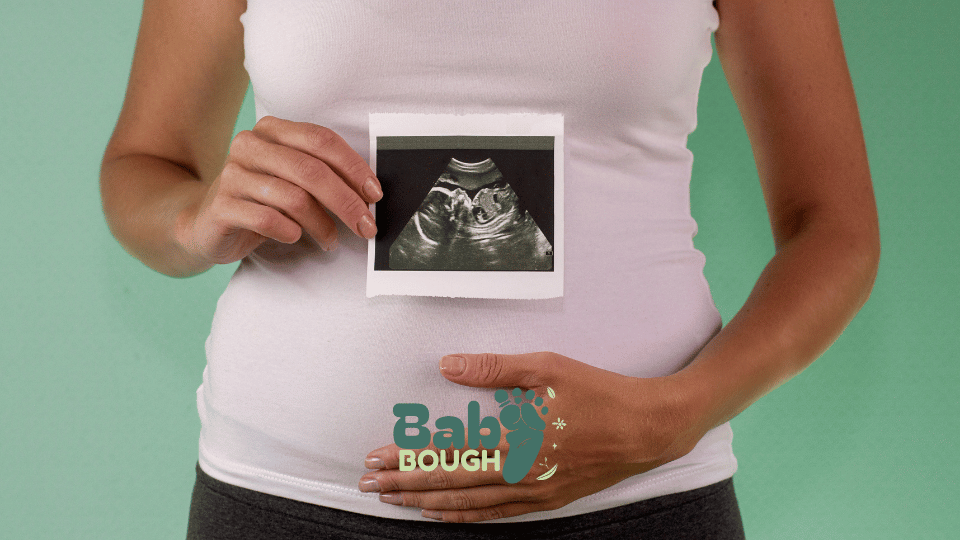Introduction:
You recently found out you are expecting—a time of immense enthusiasm and delight. But once those first emotions calm down, you start seeing results right away. Your body suddenly appears different, and familiar chores seem a little more difficult. You may feel more exhausted than ever or experience daytime nausea. Your pregnancy journey is starting here, and although exciting, it can also be overwhelming.

Though it provides a range of symptoms many women experience, including morning sickness and tiredness, the first trimester also delivers mixed feelings. These are frequently the body’s means of adjusting to the new life developing within you. Although these symptoms can be difficult, there are doable strategies to control them so that you can enjoy this unique period with more pleasure and comfort.
We will discuss some of the most often occurring early pregnancy symptoms in this blog post, along with pointers on how to manage them. From morning sickness to tiredness, we will guide you to get through your first trimester feeling strong and supported.
Understanding Morning Sickness: What’s Behind the Nausea?

Morning sickness : Affecting roughly 70% to 80% of pregnant women is one of the most well-known early pregnancy symptoms. Though its name suggests otherwise, morning sickness can hit at any time of day—morning, midday, or evening. The main causes of this nausea and vomiting are a rise in pregnancy hormones, notably human chorionic gonadotropin (hCG) and estrogen, which are very vital for sustaining the pregnancy.
While some women find morning sickness to be a minor annoyance, for others it can be rather incapacitating. You might struggle to keep meals down, lose your appetite, or feel sick all through the day. Although morning sickness typically strikes most intensely in the first trimester, it usually passes around the beginning of the second trimester.
Tips for Managing Morning Sickness:
- Eat Small, Frequent Meals: Try to eat smaller meals all through the day instead of three big ones. Keeping your stomach from being totally empty helps stop nausea. Emphasize simple, easy-to-digest items like toast, bananas, or crackers.
- Stay Hydrated: While drinking lots of water is vital, it can be challenging when you feel queasy. Try drinking fluids you enjoy, such as flavored water or ginger tea, or sip water all through the day.
- Ginger and Peppermint: These natural therapies can provide remarkable relief from nausea. In addition to peppermint tea or candies, you can also benefit from ginger tea, ginger chews, or even ginger ale.
- Get Plenty of Rest: Make sure you’re sleeping enough and pausing when you feel exhausted, as tiredness may aggravate nausea.
- Avoid Strong Smells: Make sure you’re sleeping enough and pausing when you feel exhausted, as tiredness may aggravate nausea.
Learn more about the causes and remedies for morning sickness.
Fatigue: Why Am I So Tired All the Time?

FIn the first trimester, feeling tired is rather common. Often one of the earliest symptoms of pregnancy, tiredness can leave you feeling low on energy even following a full night’s sleep. Why is this taking place? Throughout the first trimester, your body is hard at work building the placenta, the organ that will feed your baby all through pregnancy. Your heart has to work harder also when your body’s blood volume rises to provide oxygen and nutrition for your baby.
Hormonal changes are another factor. The calming action of the hormone progesterone, which is essential for preserving pregnancy, may cause you to feel more sleepy than usual. Add this to the emotional swings of early pregnancy, and it makes sense why you could feel like you could nap all day!
Tips for Managing Fatigue:
- Prioritize Rest: Pay attention to your body; rest when you need to. Aim for at least 7 to 8 hours of sleep per night; if at all possible, try to reenergize by taking short naps during the day.
- Eat Energy-Boosting Foods: Add items high in iron and protein to your diet, such as beans, lean meats, and leafy greens. These minerals can help fight tiredness by supporting good blood circulation.
- Stay Active: Though it would seem contradictory, modest exercise, including swimming, prenatal yoga, or strolling, can really increase your energy level. Just be sure to see your doctor and avoid demanding exercise regimens.
- Stay Hydrated: Make sure you’re getting enough water during the day since dehydration can aggravate tiredness.
- Take Prenatal Vitamins: Make sure you are getting your prenatal vitamins, particularly those high in iron and folic acid, since shortages of these minerals can cause tiredness.
More about dealing with fatigue in early pregnancy.
Breast Tenderness and Swelling: What to Expect?

Another common symptom during the first trimester is breast tenderness and swelling. Your breasts will get bigger as your body gets ready for nursing, and you could find they feel more sensitive or even painful. This discomfort can be attributed to hormonal changes and increased blood flow to the breast tissue. Your nipples can also start to darken and grow more touch-sensitive.
While it can be bothersome, breast soreness is often a transient symptom that passes as you enter the second trimester; many people notice it as one of the first indicators of pregnancy.
Tips for Managing Breast Tenderness:
- Wear a Supportive Bra: Extra support and less discomfort might come from a well-fitting bra—ideally a maternity or sports bra. Bras with underwires should be avoided because they can aggravate sensitivity by digging into your skin.
- Cold Compresses: A few minutes of cold compress or ice pack application for your breasts will aid with soreness.
- Sleep in a Bra: Try resting in a soft, supportive bra to reduce discomfort if your breasts are especially sensitive at night.
- Moisturize Your Skin: Your skin could feel more sensitive or dry as your breasts develop. Your skin will remain nourished, and itching will be avoided by using a mild, scent-free moisturizer.
More on managing breast tenderness during pregnancy.
Frequent Urination: Why Am I Going to the Bathroom So Often?

During the first trimester, many women experience frequent urination, and this symptom can start as early as six weeks into pregnancy. As your body increases blood flow to your kidneys, your bladder fills up more quickly, which leads to more trips to the bathroom. Additionally, the growing uterus begins to press on your bladder, further increasing the urge to go.
While frequent urination is a normal part of pregnancy, it can be inconvenient—especially if it interrupts your sleep.
Tips for Managing Frequent Urination:
- Stay Hydrated: It may be tempting to cut back on fluids to reduce bathroom trips, but staying hydrated is crucial. Dehydration can lead to other complications, such as urinary tract infections.
- Limit Fluids Before Bedtime: Try to drink the bulk of your fluids earlier in the day and reduce your intake in the hours leading up to bedtime to minimize nighttime bathroom trips.
- Avoid Diuretics: Beverages like coffee, tea, and soda can increase urine production, so it’s best to avoid them or consume them in moderation.
Constipation and Bloating: What’s Causing My Digestive Issues?
Many women experience constipation and bloating during early pregnancy, which can be uncomfortable and frustrating. These digestive issues are caused by the hormone progesterone, which relaxes the muscles in your digestive tract, slowing down digestion and making it harder for food to pass through your system. As a result, you may feel bloated or struggle with regular bowel movements.
Tips for Managing Constipation and Bloating:
- Eat Fiber-Rich Foods: Incorporate plenty of fiber into your diet, such as fruits, vegetables, whole grains, and legumes. These foods can help regulate your digestive system and prevent constipation.
- Stay Hydrated: Drinking plenty of water can soften your stool and make it easier to pass.
- Exercise Regularly: Light physical activity can stimulate digestion and help prevent constipation.
- Talk to Your Doctor: If constipation becomes severe or persistent, talk to your healthcare provider about safe remedies, such as stool softeners or fiber supplements.
Managing digestive issues during pregnancy.
Constipation and Bloating: What’s Causing My Digestive Issues?

Many women experience constipation and bloating during early pregnancy, which can be uncomfortable and frustrating. These digestive issues are caused by the hormone progesterone, which relaxes the muscles in your digestive tract, slowing down digestion and making it harder for food to pass through your system. As a result, you may feel bloated or struggle with regular bowel movements.
Tips for Managing Constipation and Bloating:
- Eat Fiber-Rich Foods: Eat lots of fiber—fruits, vegetables, whole grains, and legumes, among other things. These foods can help your digestive system run more normally and avoid constipation.
- Stay Hydrated: Drinking plenty of water can soften your stool and make it easier to pass.
- Exercise Regularly: Light physical activity can stimulate digestion and help prevent constipation.
- Talk to Your Doctor: If constipation becomes severe or persistent, talk to your healthcare provider about safe remedies, such as stool softeners or fiber supplements.
Managing digestive issues during pregnancy.
Conclusion:
Though navigating early pregnancy symptoms such as morning sickness, tiredness, and other bodily changes can be difficult, knowing what is happening to your body and how to control these symptoms will make all the difference. You can get through the first trimester more easily if you eat healthily, keep hydrated, get enough sleep, and apply sensible techniques to manage discomfort.
Although every woman’s pregnancy path is different, these symptoms are typical; your experience may be various. See your healthcare practitioner if you ever worry about your symptoms or require more help. After all, pregnancy is a time to tend to both your growing baby and yourself.
Following these suggestions will help you confidently negotiate the ups and downs of early pregnancy and look forward to the interesting months ahead.

